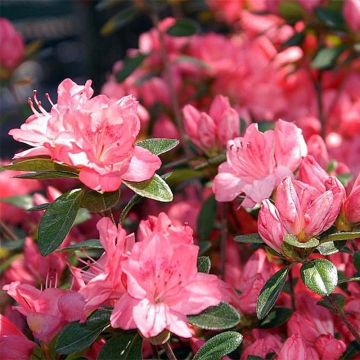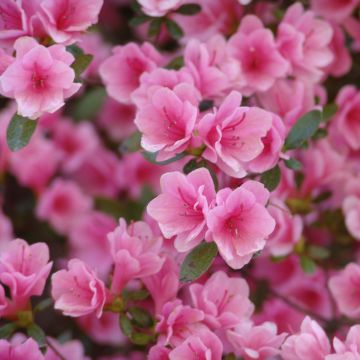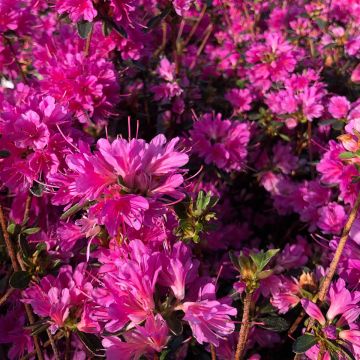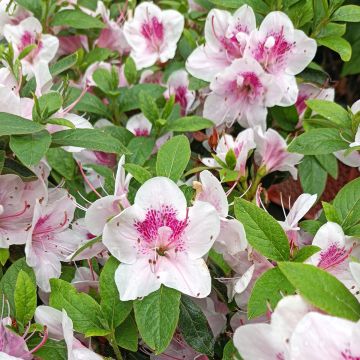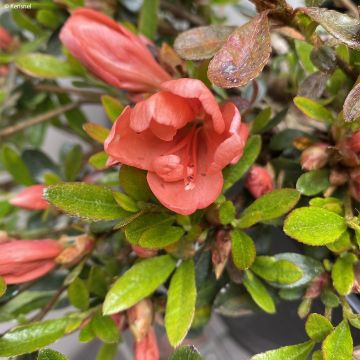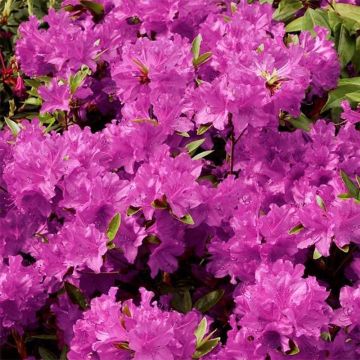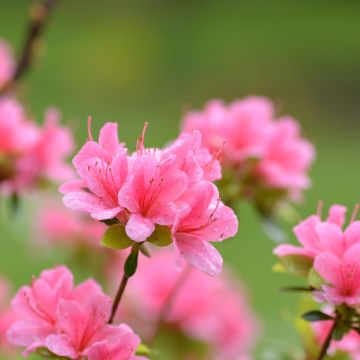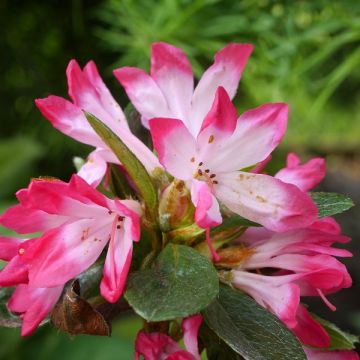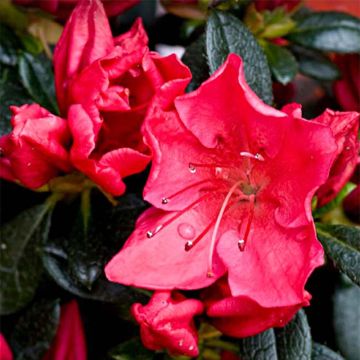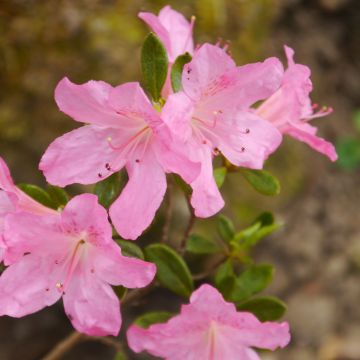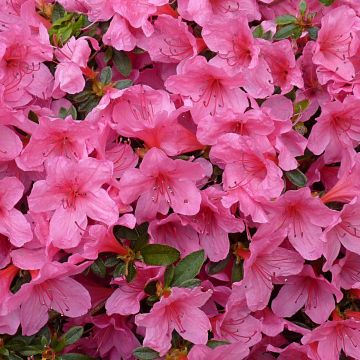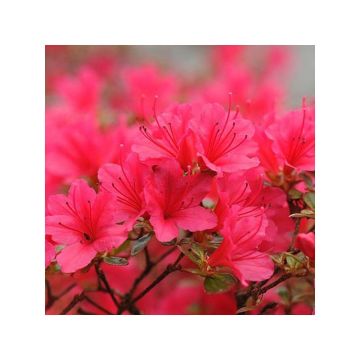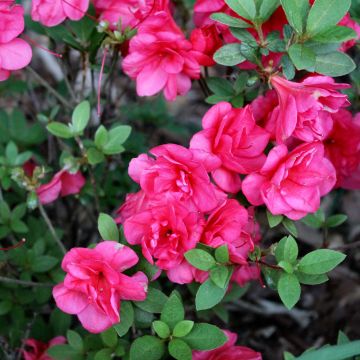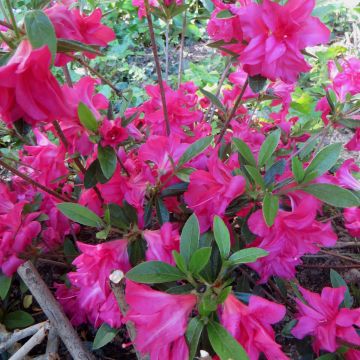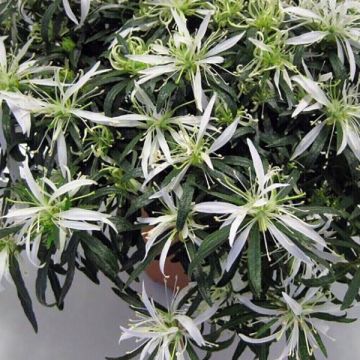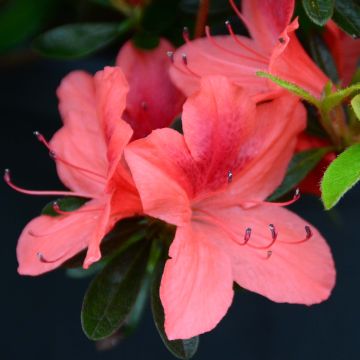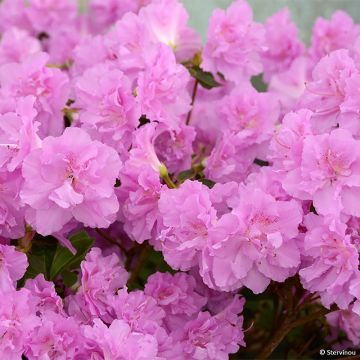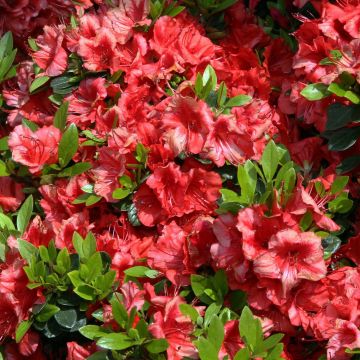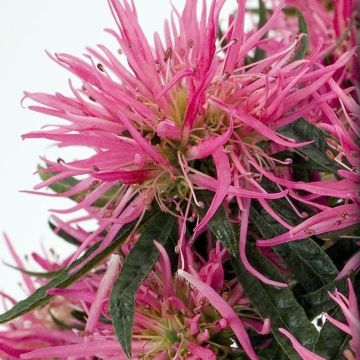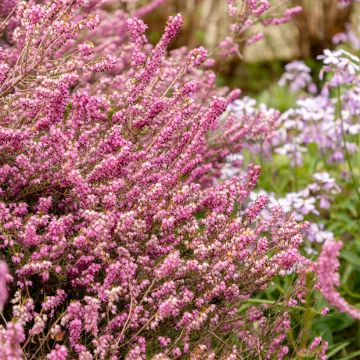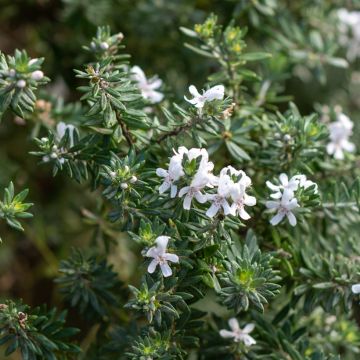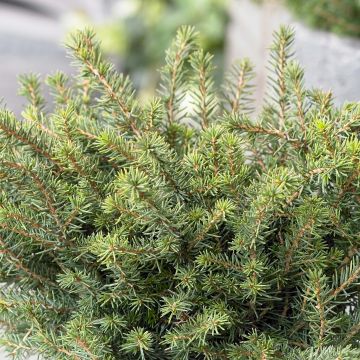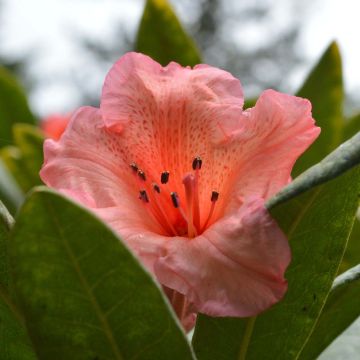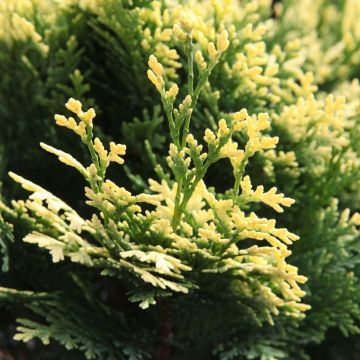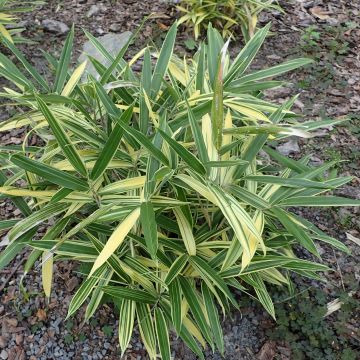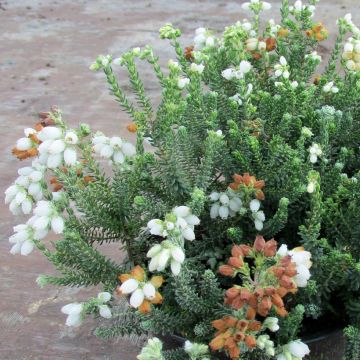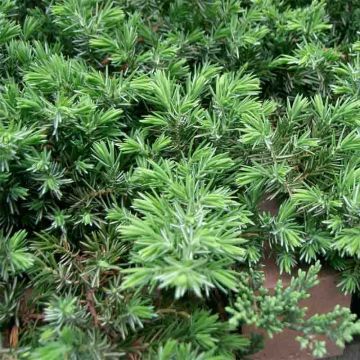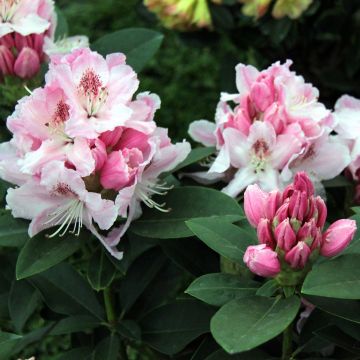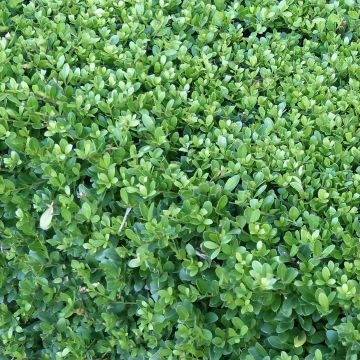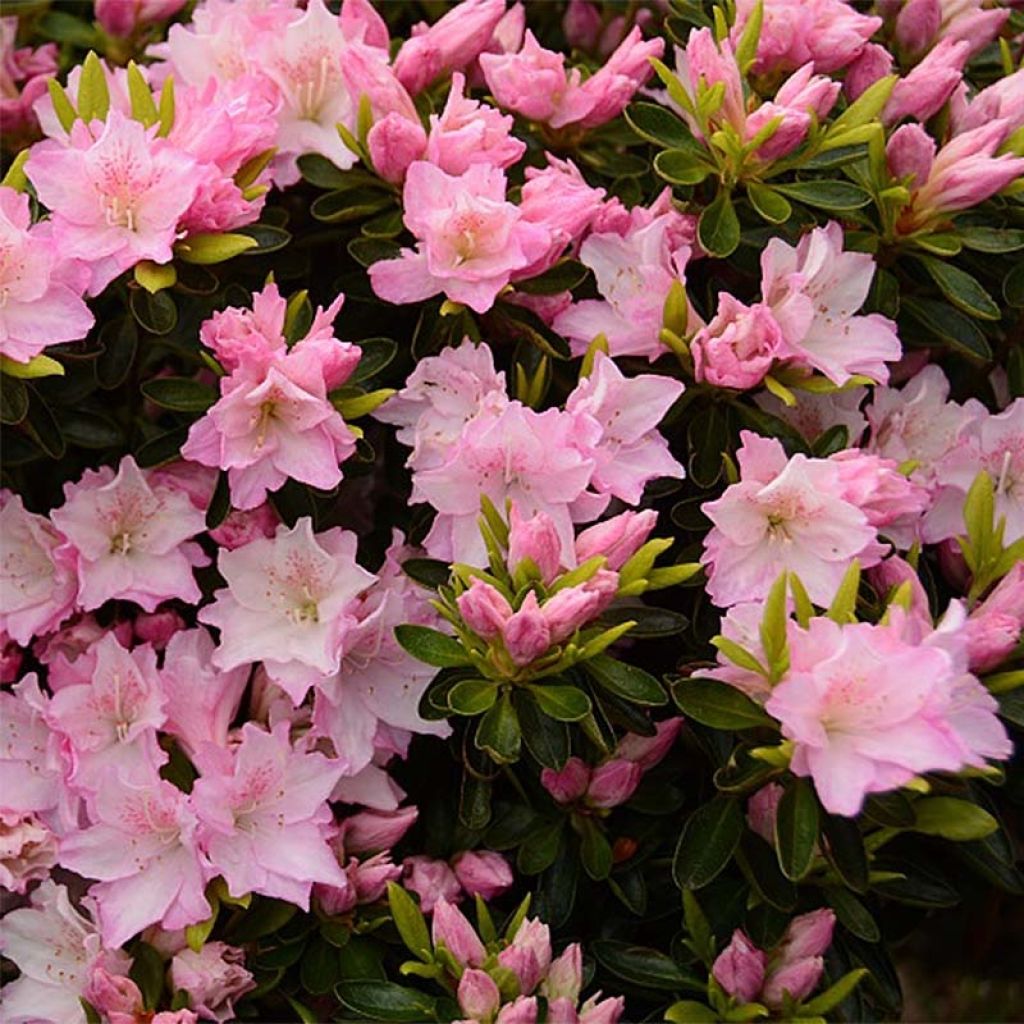

Azalea japonica Als Picotee
Azalea japonica Als Picotee
Rhododendron (Azalea) japonica Al's Picotee
Japanese Azalea
Why not try an alternative variety in stock?
View all →This plant carries a 24 months recovery warranty
More information
We guarantee the quality of our plants for a full growing cycle, and will replace at our expense any plant that fails to recover under normal climatic and planting conditions.
From €5.90 for pickup delivery and €6.90 for home delivery
Express home delivery from €8.90.

Does this plant fit my garden?
Set up your Plantfit profile →
Description
The Japanese Azalea Al's Picotee transforms into a delightful pastel pink bush in spring. This pretty newcomer, with its dense, attractively rounded growth, is covered with double flowers in a delicate shades of white, soft pink and pale lilac. This cold-resistant ericaceous shrub is also an elegant evergreen that will liven up shady rock gardens, terraces or the gaps left under the canopy of tall Rhododendrons, all year round.
The Hybrid Rhododendron Al's Picotee, a cross between the 'Elsie Lee' variety and the Rhododendron kusianum, is a recent horticultural development. It is part of a series of particularly compact and hardy evergreen hybrids that perform well in cool, humid temperate climates with distinct seasons. This Al's Picotee variety is said to withstand temperatures as low as -26°C (-14.8), according to the American Rhododendron Society.
'Al's Picotee' is a moderately-sized variety, well-branched, with a rounded habit that spreads slightly with age. It reaches a height of about 60-70 cm (23.6-27.6 in) and a spread of 90 cm (35.4 in) by the age of 10. It flowers for about 3 weeks in the middle of the Japanese azalea season, usually in late April. The double flowers, with beautiful wavy edges, are a superb pastel colour: white washed with pale pink and mauve-pink along the edges. The centre is speckled with pink. They are funnel-shaped and gathered in terminal clusters of 4 to 5. The foliage, evergreen in winter, consists of small, simple, elliptical leaves with smooth edges, arranged alternately on the branches. Throughout the growing season, they are dark green, sometimes tinged with bronze in cold weather. Each leaf has a lifespan of 2 years. Azaleas and Rhododendrons have a shallow root system that always needs to be kept moist, but they also dislike waterlogged soil which would suffocate the roots.
Japanese azaleas thrive in cool and humid climates with distinct winters, planted in humus-rich, acid soil, such as ericaceous soil. Under these conditions, they are beautiful evergreen shrubs for flowerbeds or pots, attractive all year round. They harmonise beautifully with heathers, Japanese maples, or their relatives, Chinese Azaleas, which change colour with the seasons, as well as Japanese camellias and their graceful often fragrant, autumn-flowering cousins, the Camellia sasanqua hybrids. This 'Al's Picotee' variety, with its neat, soft pastel colouring, will liven up any gaps left under the tall ericaceous shrubs. It will look wonderful in a large, cool, moist and shaded rocky area or at the front of flowerbeds, but also on the terrace or balcony, in a large, carefully chosen pot, with suitable soil and watering with lime-free water.
Report an error about the product description
Azalea japonica Als Picotee in pictures
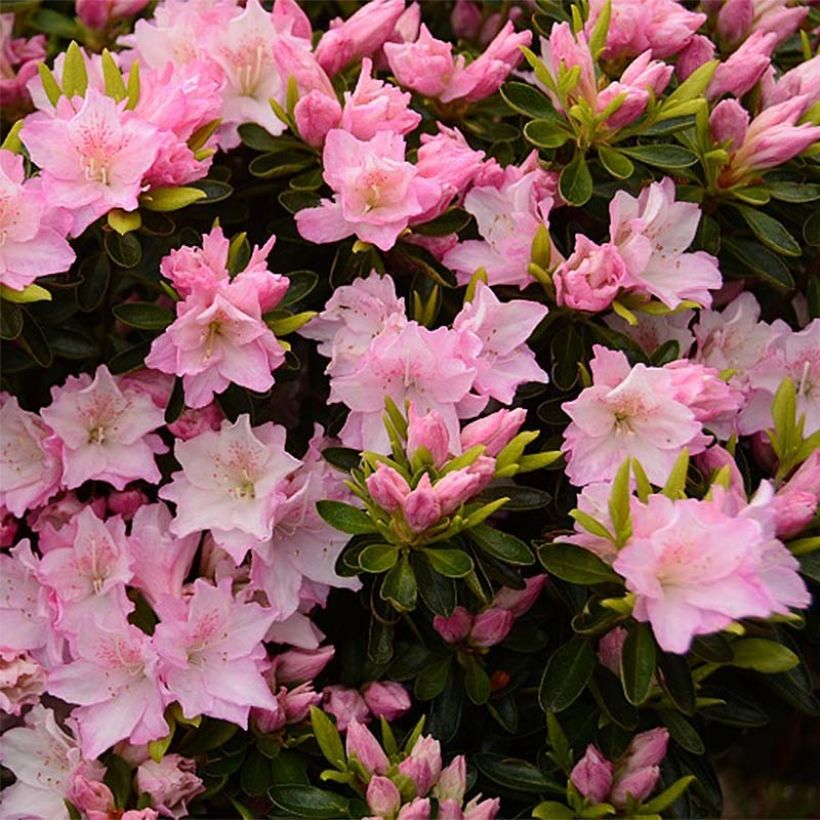

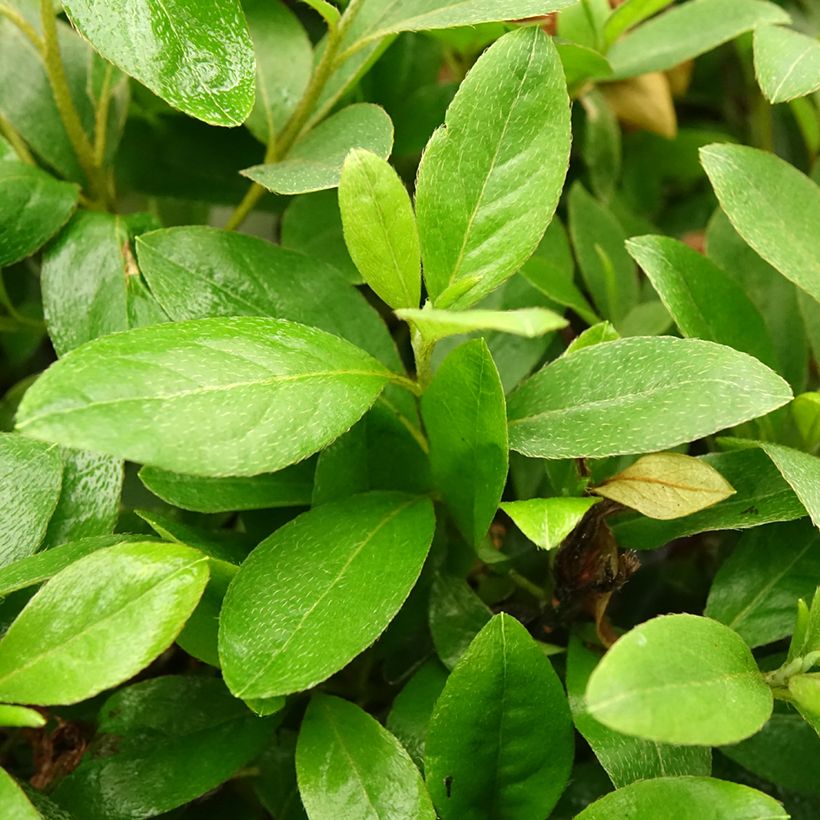

Plant habit
Flowering
Foliage
Botanical data
Rhododendron (Azalea)
japonica
Al's Picotee
Ericaceae
Japanese Azalea
Cultivar or hybrid
Other Japanese Azalea
Planting and care
The Japanese Azalea thrives in a rather shady location, unlike the Chinese Azalea, but its favourite position is in partial shade. It is a plant that thrives in a humid, cool climate and does not tolerate heat, dry air, or excessively dry or waterlogged soils. Plant it in an ericaceous, humus-rich, well-drained and lime-free soil. During planting, make sure not to bury the root ball too deeply, it should be level with the surface of the soil. Water copiuosly during dry periods, at least once a week during the first year, with alkaline-free water.
In spring, apply fertilizer for ericaceous plants. Pruning is not essential but it is a good idea to prune lightly after flowering to keep the plant looking neat. Remove spent flowers to encourage new growth. The Azalea suffers from very few diseases when well established outdoors. It can be attacked by weevils that eat the edges of the leaves and rootlets, and by the famous "Rhododendron lace bug", not often causing significant damage. If the soil is chalky or poorly drained, or if the plant is
planted too deep, the leaves may turn yellow and eventually die.
Planting period
Intended location
Care
-
, onOrder confirmed
Reply from on Promesse de fleurs
Evergreen shrubs
Haven't found what you were looking for?
Hardiness is the lowest winter temperature a plant can endure without suffering serious damage or even dying. However, hardiness is affected by location (a sheltered area, such as a patio), protection (winter cover) and soil type (hardiness is improved by well-drained soil).

Photo Sharing Terms & Conditions
In order to encourage gardeners to interact and share their experiences, Promesse de fleurs offers various media enabling content to be uploaded onto its Site - in particular via the ‘Photo sharing’ module.
The User agrees to refrain from:
- Posting any content that is illegal, prejudicial, insulting, racist, inciteful to hatred, revisionist, contrary to public decency, that infringes on privacy or on the privacy rights of third parties, in particular the publicity rights of persons and goods, intellectual property rights, or the right to privacy.
- Submitting content on behalf of a third party;
- Impersonate the identity of a third party and/or publish any personal information about a third party;
In general, the User undertakes to refrain from any unethical behaviour.
All Content (in particular text, comments, files, images, photos, videos, creative works, etc.), which may be subject to property or intellectual property rights, image or other private rights, shall remain the property of the User, subject to the limited rights granted by the terms of the licence granted by Promesse de fleurs as stated below. Users are at liberty to publish or not to publish such Content on the Site, notably via the ‘Photo Sharing’ facility, and accept that this Content shall be made public and freely accessible, notably on the Internet.
Users further acknowledge, undertake to have ,and guarantee that they hold all necessary rights and permissions to publish such material on the Site, in particular with regard to the legislation in force pertaining to any privacy, property, intellectual property, image, or contractual rights, or rights of any other nature. By publishing such Content on the Site, Users acknowledge accepting full liability as publishers of the Content within the meaning of the law, and grant Promesse de fleurs, free of charge, an inclusive, worldwide licence for the said Content for the entire duration of its publication, including all reproduction, representation, up/downloading, displaying, performing, transmission, and storage rights.
Users also grant permission for their name to be linked to the Content and accept that this link may not always be made available.
By engaging in posting material, Users consent to their Content becoming automatically accessible on the Internet, in particular on other sites and/or blogs and/or web pages of the Promesse de fleurs site, including in particular social pages and the Promesse de fleurs catalogue.
Users may secure the removal of entrusted content free of charge by issuing a simple request via our contact form.
The flowering period indicated on our website applies to countries and regions located in USDA zone 8 (France, the United Kingdom, Ireland, the Netherlands, etc.)
It will vary according to where you live:
- In zones 9 to 10 (Italy, Spain, Greece, etc.), flowering will occur about 2 to 4 weeks earlier.
- In zones 6 to 7 (Germany, Poland, Slovenia, and lower mountainous regions), flowering will be delayed by 2 to 3 weeks.
- In zone 5 (Central Europe, Scandinavia), blooming will be delayed by 3 to 5 weeks.
In temperate climates, pruning of spring-flowering shrubs (forsythia, spireas, etc.) should be done just after flowering.
Pruning of summer-flowering shrubs (Indian Lilac, Perovskia, etc.) can be done in winter or spring.
In cold regions as well as with frost-sensitive plants, avoid pruning too early when severe frosts may still occur.
The planting period indicated on our website applies to countries and regions located in USDA zone 8 (France, United Kingdom, Ireland, Netherlands).
It will vary according to where you live:
- In Mediterranean zones (Marseille, Madrid, Milan, etc.), autumn and winter are the best planting periods.
- In continental zones (Strasbourg, Munich, Vienna, etc.), delay planting by 2 to 3 weeks in spring and bring it forward by 2 to 4 weeks in autumn.
- In mountainous regions (the Alps, Pyrenees, Carpathians, etc.), it is best to plant in late spring (May-June) or late summer (August-September).
The harvesting period indicated on our website applies to countries and regions in USDA zone 8 (France, England, Ireland, the Netherlands).
In colder areas (Scandinavia, Poland, Austria...) fruit and vegetable harvests are likely to be delayed by 3-4 weeks.
In warmer areas (Italy, Spain, Greece, etc.), harvesting will probably take place earlier, depending on weather conditions.
The sowing periods indicated on our website apply to countries and regions within USDA Zone 8 (France, UK, Ireland, Netherlands).
In colder areas (Scandinavia, Poland, Austria...), delay any outdoor sowing by 3-4 weeks, or sow under glass.
In warmer climes (Italy, Spain, Greece, etc.), bring outdoor sowing forward by a few weeks.

































